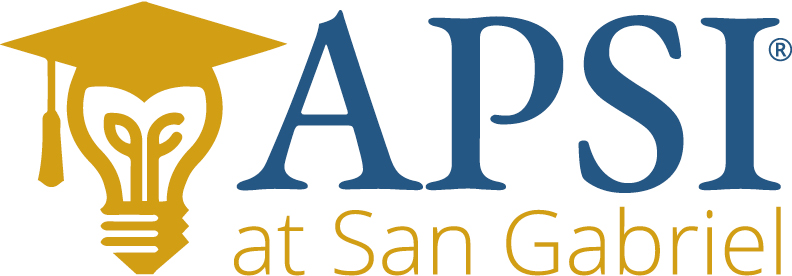Ken Stewart, World Language Consultant

Ken Stewart (BA International Studies and Spanish UNC-Chapel Hill; MA Spanish NC State University) is the 2006 ACTFL National Foreign Language Teacher of Year. He currently teaches Spanish at Duke University in North Carolina. A National Board Certified high school Spanish teacher, he has taught middle grades through college. Ken is a recent member of the ACTFL Board of Directors, the SCOLT Board, and the Executive Council of the AATSP. In 2014, he was the recipient of ACTFL’s Florence Steiner Award for Leadership in Foreign Language Education K-12.
Ken has been a consultant to the College Board since 1992. He has served on the AP Spanish Language and Culture Test Development Committee, as a question leader at the AP Reading, and has been a national consultant for over 25 years. He has conducted over 200 AP and pre-AP workshops and summer institutes throughout the US as well as in Europe, the Middle East, Asia and Latin America.
Previously, Ken was honored as the Central North Carolina Teacher of the Year by the State of NC, Teacher of the Year by the AATSP, Foreign Language Teacher of the Year by FLANC (The Foreign
Language Association of North Carolina) and as Regional Teacher of the Year by SCOLT (Southern Conference on Language Teaching). He is a frequent presenter at state, regional and national conferences.
Ken works as a freelance world language consultant and keynote speaker. An aficionado of travel, he speaks Spanish, Portuguese and some French; he has traveled in 43 countries.
Overview
This workshop will guide teachers in designing and developing a course in AP Spanish Language and Culture. The course will provide sample materials and classroom activities relating to the 2020 exam. Participants will be asked to actively participate and share best practices with the entire group on a daily basis. The AP Summer Institute San Gabriel is endorsed by the College Board.
Topics will include the following:
• Developing and integrating the three modes of communication; Interpretive, Interpersonal and Presentational.
• Building proficiency across modes of communication.
• Teaching AP Spanish Language and Culture across themes.
• Teaching and developing culture in the AP Spanish Language and Culture course.
• NEW 2020-2021 Support materials for AP world languages
• Using authentic resources for thematic unit design
• Developing vocabulary.
• Integrating authentic literature in the AP Spanish Language and Culture course.
• Using project-based learning a way to integrate and develop language skills.
• Applying the scoring criteria to student samples.
What participants should bring:
• A new idea or activity used last year in their course. Electronic copies are encouraged.
• A laptop computer or an iPad.
Agenda
Day 1: Getting Started with the AP* Spanish Language and Culture Course and Exam
- Introductions: Warm-up activity
- Overview and agenda.
- Understanding the modes of communication and how to build proficiency across modes.
- Test-day administration/proctors/equipment/language labs.
- Inclusion of the National Standards and the 5 C’s; Communication, Comparisons, Communities,Cultures and Connections
- Using the AP Themes to develop instructional units of study that integrate the modes ofcommunication.
- Course Planning and Pacing Guides
- Textbooks and test prep books
- AP Central and the AP Community.
- Join the AP Spanish Language and Culture AP Community
- The AP Spanish Language and Culture Exam Format: Which areas are most problematic for your students? What strategies do you have in place to help students be successful
- Section I: Multiple Choice-Interpretive Communication
- Section 2: Free Response-Interpersonal and Presentation Communication
- Essential Questions.
- Lesson planning, scope and sequencing
- Reflection
Day 2: Developing and integrating the modes of communication: focus on interpretive communication.
- Warm up activity.
- Questions regarding homework assignment, share some ideas.
- Developing interpersonal speaking skills.
- Activities/assessments
- Strategies for success
- Building proficiency
- Scaffolding interpersonal speaking
- ScoringCriteria
- Review and score student samples from the AP Spanish Language and Culture 2019 exam.
- Developing interpersonal writing skills, activities, assessments, scoring criteria.
- Activities/assessments
- The email
- Strategies for success.
- Building proficiency
- Using and integrating connector words
- Organizational strategies
- Scaffolding interpersonal writing
- ScoringCriteria
- Review and score student samples from the AP Spanish Language and Culture 2019 exam.
- Lesson planning; a work in progress.
- Preparing a thematic Unit
- Working in small groups to present on the final day; each group will work with a different theme.
- An outline of a sample unit
- Reflection
Day 3: Developing and integrating the modes of communication: focus on interpersonal communication.
- Warm up activity.
- Questions regarding homework assignment, share some ideas.
- Developing presentational writing skills, activities, assessments, scoring criteria.
- Activities/assessments
- The persuasive essay
- Strategies for success.
- Building proficiency
- Using and integrating connector words
- Organizational strategies & citing sources
- Writing the hook and thesis
- Scaffolding presentational writing
- Scoring Criteria
- Review and score student samples from the AP Spanish Language and Culture
2019 exam.
- Review and score student samples from the AP Spanish Language and Culture
- Developing presentational speaking skills; strategies for success, building proficiency.
- Activities/assessments
- The cultural comparison task
- Strategies for success.
- How do we make comparisons?
- Organizational strategies
- Strategies for success.
- Scaffolding presentational speaking
- Scoring Criteria
- Review and score student samples from the AP Spanish Language and Culture
2019 exam. - Other ideas for scoring criteria
- Review and score student samples from the AP Spanish Language and Culture
Day 4: Developing and integrating the modes of communication: focus on presentational communication.
- Warm up activity.
- Questions regarding homework assignment, share some ideas.
- Working with Essential Questions to develop units of study that integrate the AP Spanish Language and Culture Themes.
- Working with thematic units.
- How many thematic units per quarter/semester will I cover?
- What are the contexts that will be developed in this thematic unit?
- How will I integrate other themes?
- How many units do you cover in one semester?
- Developing Written and print interpretive communication; strategies for success.
- To include; charts, graphs, articles, literature
- Strategies for working with charts and graphs.
- Activities/assessments
- Developing Audio, visual and Audio Visual communication, strategies for success.
- To include, radio broadcasts, podcasts, short clips, cortometrajes; films, art.
- How do I integrate and use art in film in my AP Language course?
- Strategies for working with audio, visual and audio visual communication.
- Activities/assessments
- To include, radio broadcasts, podcasts, short clips, cortometrajes; films, art.
- Using graphs, charts and maps.
- Using graphic organizers and mind maps.
- Using authentic literature in the AP Spanish Language and Culture Classroom; reading comprehension strategies.
- Scaffolding poetry and prose.
- Authentic literature; accessible to all students.
- Adapting and scaffolding the AP Literature reading list for Spanish language and at the lower levels.
- Using video in the classroom to enhance thematic units
- What films are appropriate at this level?
- Lesson planning; a work in progress.
- Preparing a thematic Unit
- Working in small groups to present on the final day; each group will work with a different theme.
- How many thematic units per quarter/semester will I cover?
- Reflection
















